 W
WPeter Henry George Aczel is a British mathematician, logician and Emeritus joint Professor in the Department of Computer Science and the School of Mathematics at the University of Manchester. He is known for his work in non-well-founded set theory, constructive set theory, and Frege structures.
 W
WCharlotte Blease is a Northern Irish science philosopher and cognitive scientist from Belfast, Northern Ireland. She is an Irish Research Council fellow and a University College Dublin lecturer.
 W
WPaul Brunton is the pen name of Raphael Hurst, a British author of spiritual books. He is best known as one of the early popularizers of Neo-Hindu spiritualism in western esotericism, notably via his bestselling A Search in Secret India (1934) which has been translated into over 20 languages.
 W
WMalcolm Budd is a British philosopher.
 W
WAlexander Theodore Callinicos is a Zimbabwean-born British political theorist and activist. In an academic capacity, he serves as Professor of European Studies at King's College London. An adherent of Trotskyism, he is a member of the Central Committee of the Socialist Workers Party (SWP) and serves as its International Secretary. He is also editor of International Socialism, the SWP's theoretical journal, and has published a number of books.
 W
WQuassim Cassam is professor of philosophy at the University of Warwick. He writes on self-knowledge, perception, epistemic vices and topics in Kantian epistemology.
 W
WS. Barry Cooper was an English mathematician and computability theorist. He was a professor of Pure Mathematics at the University of Leeds.
 W
WGary Cox is a British philosopher and biographer and the author of several books on Jean-Paul Sartre, existentialism, general philosophy, ethics and philosophy of sport.
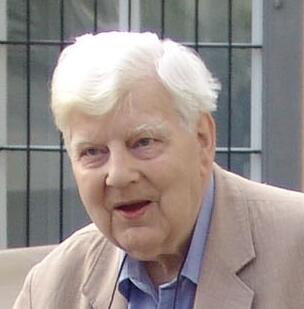 W
WSir Michael Anthony Eardley Dummett (1925–2011) was an English academic described as "among the most significant British philosophers of the last century and a leading campaigner for racial tolerance and equality." He was, until 1992, Wykeham Professor of Logic at the University of Oxford. He wrote on the history of analytic philosophy, notably as an interpreter of Frege, and made original contributions particularly in the philosophies of mathematics, logic, language and metaphysics. He was known for his work on truth and meaning and their implications to debates between realism and anti-realism, a term he helped to popularize. He devised the Quota Borda system of proportional voting, based on the Borda count. In mathematical logic, he developed an intermediate logic, already studied by Kurt Gödel: the Gödel–Dummett logic.
 W
WJohn William Dunne was a British soldier, aeronautical engineer and philosopher. As a young man he fought in the Second Boer War, before becoming a pioneering aeroplane designer in the early years of the 20th century. Dunne worked on automatically stable aircraft, many of which were of tailless swept wing design, to achieve the first certified stable aircraft. He later developed a new approach to dry fly fishing before turning to philosophy, where he achieved some pre-eminence and literary influence through his theory on the nature of time and consciousness, called "serialism".
 W
WStephen Gaukroger, is a British/Australian historian of philosophy and science. He is Emeritus Professor of History of Philosophy and History of Science at the University of Sydney.
 W
WLionel Giles was a British sinologist, writer, and philosopher. Lionel Giles served as assistant curator at the British Museum and Keeper of the Department of Oriental Manuscripts and Printed Books. He is most notable for his 1910 translation of The Art of War by Sun Tzu and The Analects of Confucius.
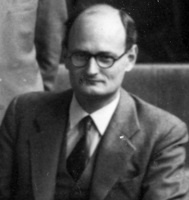 W
WRichard Mervyn Hare, usually cited as R. M. Hare, was an English moral philosopher who held the post of White's Professor of Moral Philosophy at the University of Oxford from 1966 until 1983. He subsequently taught for a number of years at the University of Florida. His meta-ethical theories were influential during the second half of the twentieth century.
 W
WJohn Morley Harris, FMedSci, FRSA, FRSB, is a British bioethicist and philosopher. He is the Lord Alliance Professor of Bioethics and Director of the Institute for Science, Ethics and Innovation at the University of Manchester.
 W
WFriedrich August von Hayek, often referred to by his initials F. A. Hayek, was an Austrian-British economist and philosopher who is best known for his defence of classical liberalism. Hayek shared the 1974 Nobel Memorial Prize in Economic Sciences with Gunnar Myrdal for his "pioneering work in the theory of money and economic fluctuations and [...] penetrating analysis of the interdependence of economic, social and institutional phenomena". His account of how changing prices communicate information that helps individuals co-ordinate their plans is widely regarded as an important achievement in economics, leading to his Nobel Prize.
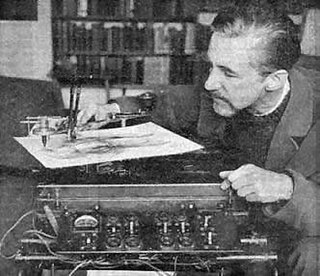 W
WDesmond Paul Henry (1921–2004) was a Manchester University Lecturer and Reader in Philosophy (1949–82). He was one of the first British artists to experiment with machine-generated visual effects at the time of the emerging global computer art movement of the 1960s. During this period, Henry constructed a succession of three drawing machines from modified bombsight analogue computers which were employed in World War II bombers to calculate the accurate release of bombs onto their targets. Henry's machine-generated effects resemble complex versions of the abstract, curvilinear graphics which accompany Microsoft's Windows Media Player. Henry's machine-generated effects may therefore also be said to represent early examples of computer graphics: "the making of line drawings with the aid of computers and drawing machines".
 W
WAngela Hunter "Angie" Hobbs is a British philosopher and academic, who specialises in Ancient Greek philosophy and ethics. She is Professor of the Public Understanding of Philosophy at the University of Sheffield.
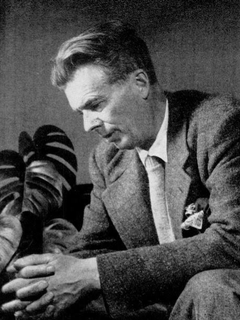 W
WAldous Leonard Huxley was an English writer and philosopher. He wrote nearly fifty books—both novels and non-fiction works—as well as wide-ranging essays, narratives, and poems.
 W
WWilliam Ernest Johnson, usually cited as W. E. Johnson, was a British philosopher, logician and economic theorist. He is mainly remembered for his 3 volume Logic which introduced the concept of exchangeability.
 W
WPhilip Stuart Kitcher is a British philosophy professor teaching at Columbia University who specialises in the philosophy of science, the philosophy of biology, the philosophy of mathematics, the philosophy of literature, and more recently pragmatism.
 W
WBrian Klug is senior research fellow and tutor in philosophy at St. Benet's Hall, Oxford and a member of the philosophy faculty at Oxford University. He is also an honorary fellow of the Parkes Institute for the Study of Jewish/non-Jewish Relations, University of Southampton and fellow of the College, Saint Xavier University, Chicago.
 W
WMartha Kneale was a British philosopher.
 W
WRobert Anthony Kowalski is a logician and computer scientist, whose research is concerned with developing both human-oriented models of computing and computational models of human thinking. He has spent most of his career in the United Kingdom.
 W
WPeter Vaudreuil Lamarque is a British aesthethician and philosopher of art, working in the analytic tradition. Since 2000, he has been a Professor of Philosophy at the University of York. He is known primarily for his work in philosophy of literature and on the role of emotions in fiction.
 W
WClive Staples Lewis was a British writer and lay theologian. He held academic positions in English literature at both Oxford University and Cambridge University. He is best known for his works of fiction, especially The Screwtape Letters, The Chronicles of Narnia, and The Space Trilogy, and for his non-fiction Christian apologetics, such as Mere Christianity, Miracles, and The Problem of Pain.
 W
WJean-Louis de Lolme or Delolme was a Genevan and British political theorist and writer on constitutional matters, born in the then independent Republic of Geneva. As an adult he moved to England, and became a British subject. His most famous work was Constitution de l'Angleterre, which was subsequently published in English as well. In it, de Lolme advocated a constitutional form of government enshrining the principle that monarchy, aristocracy and democracy should be balanced against each other. He also praised the element of representative democracy in the constitution, and urged an extension of suffrage. The work influenced many of the framers of the United States Constitution.
 W
WJohn Leslie Mackie was an Australian philosopher. He made significant contributions to the philosophy of religion, metaphysics, and the philosophy of language, and is perhaps best known for his views on metaethics, especially his defence of moral scepticism. He wrote six books. His most widely known, Ethics: Inventing Right and Wrong (1977), opens by boldly stating, "There are no objective values." It goes on to argue that because of this ethics must be invented rather than discovered. He posthumously published The Miracle of Theism: Arguments For and Against the Existence of God (1983), has been called "a tour de force" in contemporary analytic philosophy. Many considered Mackie one of the best defenders of philosophical atheism. In the 1980s, Time magazine called him the "ablest of today's atheistic philosophers", and he regularly debated Christian philosophers such as Richard Swinburne and Alvin Plantinga.
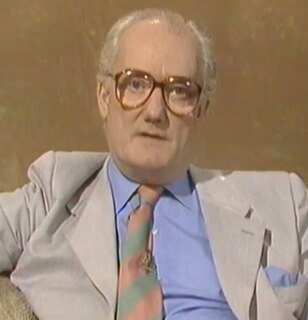 W
WBryan Edgar Magee was a British philosopher, broadcaster, politician and author, best known for bringing philosophy to a popular audience.
 W
WAdrian William Moore is a British philosopher and broadcaster. He is Professor of Philosophy at the University of Oxford and tutorial fellow of St Hugh's College, Oxford. His main areas of interest are Kant, Wittgenstein, history of philosophy, metaphysics, philosophy of mathematics, philosophy of logic and language, ethics and philosophy of religion.
 W
WJon Reid Oberlander FRSE was Professor of Epistemics at the School of Informatics, University of Edinburgh. He received a BA in Philosophy from Pembroke College, Cambridge, in 1983 and a PhD in Cognitive Science from the University of Edinburgh in 1987.
 W
WMichael Polanyi was a Hungarian-British polymath, who made important theoretical contributions to physical chemistry, economics, and philosophy. He argued that positivism supplies a false account of knowing, which if taken seriously undermines humanity's highest achievements.
 W
WStephen Martin Priest is a British philosopher. He is a Senior Research Fellow in Philosophy at Blackfriars, Oxford and a member of the Faculty of Philosophy of the University of Oxford. He is also a member of Wolfson College, Oxford and Hughes Hall, Cambridge. Priest has held visiting professorships in the United States, Europe and Asia, and is best known for bringing the methods of analytic philosophy to Continental thinkers including Hegel, Husserl, Sartre and Merleau-Ponty.
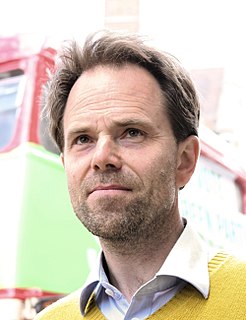 W
WRupert Read is an academic and a Green Party campaigner and a spokesperson for Extinction Rebellion. Read is a reader in philosophy at the University of East Anglia where he has been awarded – as Principal Investigator – Arts and Humanities Research Council (AHRC) funding for two projects on "natural capital". His other major recent academic focus has been on the precautionary principle, having contributed substantially to work co-authored with Nassim Nicholas Taleb on applying the principle to questions of genetic modification of organisms. In further work, Read has theorised the utility of the precautionary principle in a wide range of areas, including: climate change, the environment, as well as financial and technology sectors.
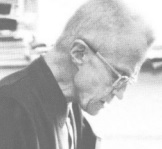 W
WRush Rhees was an American philosopher. He is principally known as a student, friend, and literary executor of the philosopher Ludwig Wittgenstein. With G. E. M. Anscombe, he edited Wittgenstein's posthumous Philosophical Investigations (1953), a highly influential work. He was also responsible for publishing other works by Wittgenstein, including Remarks on the Foundations of Mathematics, Philosophische Bemerkungen, Philosophical Remarks, and Philosophical Grammar. Rhees taught philosophy at Swansea University from 1940 until 1966, when he took early retirement to devote more time to editing Wittgenstein's works.
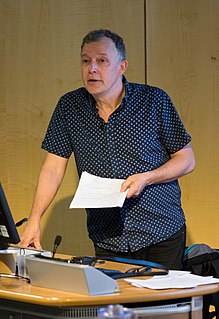 W
WTony D. Sampson is a British critical theorist who writes and lectures about philosophies of media technology, design thinking, social and immersive user experiences and neurocultures. He has published extensively on digital media cultures, social contagion theory, neurocultures, affect philosophy, assemblage theory and social media. He is best known for his widely cited and debated academic publications on virality, network contagion and neuroculture. This work is influenced by the 19th century French sociologist, Gabriel Tarde and concerns contemporary analyses of viral phenomena and affective and emotional contagion on the Internet. In 2017 Sampson published The Assemblage Brain, a book about the culture of the affective brain explored through digital media, the neurosciences, business, cybernetics and political power. His most recent publication, A Sleepwalker's Guide to Social Media, draws on contagion theory to explore the power dynamic of a post-Cambridge Analytica social media environment.
 W
WSimon J. Schaffer is a professor of the history and philosophy of science at the Department of History and Philosophy of Science at the University of Cambridge and was editor of The British Journal for the History of Science from 2004 to 2009.
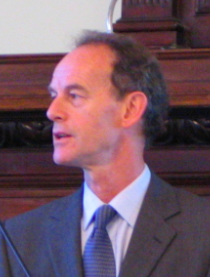 W
WPeter M. Simons, is a British philosopher and a retired professor of philosophy at Trinity College Dublin. He is known for his work with Kevin Mulligan and Barry Smith on metaphysics and the history of Austrian philosophy. Since 2018 he is Visiting Professor at the University of Italian Switzerland.
 W
WRobert Rowland Smith is a British author and philosopher. His books include Derrida and Autobiography, Breakfast with Socrates: The philosophy of everyday life, and AutoBioPhilosophy: An intimate story of what it means to be human. He is a regular speaker at public and private events, addressing a wide range of topics that includes philosophy, psychology, politics and art. Alongside his literary career, Smith works as a business adviser and practitioner of Systemic Family Constellations.
 W
WThe Turing Guide, written by Jack Copeland, Jonathan Bowen, Mark Sprevak, Robin Wilson, and others and published in 2017, is a book about the work and life of the British mathematician, philosopher, and early computer scientist, Alan Turing (1912–1954).
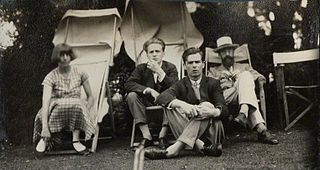 W
WWalter John Herbert Sprott, known to friends as ‘Sebastian’ Sprott, and also known as Jack Sprott (1897–1971), was a British psychologist and writer.
 W
WRoger Steare is a British ethicist and corporate philosopher.
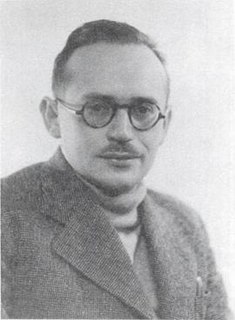 W
WFranz Baermann Steiner was an ethnologist, polymath, essayist, aphorist, and poet. He was familiar, apart from German, Yiddish, Czech, Greek and Latin, with both classical and modern Arabic, Hebrew, Turkish, Armenian, Persian, Malay, English, French, Spanish, Italian, Russian, six other Slavic languages, Scandinavian languages and Dutch.
 W
WThomas William Charles ("Tom") Stoneham is a British philosopher. He has published on a range of topics in metaphysics, epistemology, philosophical logic, and the philosophy of George Berkeley. Currently, Stoneham is Professor of Philosophy at the University of York and Head of the Department of Philosophy at York. He is Honorary Treasurer of the UK Council for Graduate Education, an Editorial Board member of White Rose University Press, and a member of the AHRC Peer Review College.
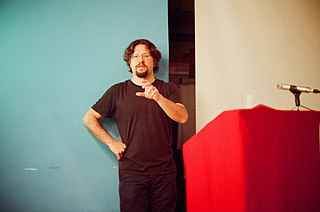 W
WAlberto Toscano is an Italian cultural critic, social theorist, philosopher and translator. He has translated the work of Alain Badiou, including Badiou's The Century and Logics of Worlds. He served as both editor and translator of Badiou's Theoretical Writings and On Beckett.
 W
WJames Opie Urmson, usually cited as J. O. Urmson, was a philosopher and classicist who spent most of his professional career at Corpus Christi College, Oxford. He was a prolific author and expert on a number of topics including British analytic/linguistic philosophy, George Berkeley, ethics, and Greek philosophy.
 W
WRalph Charles Sutherland Walker is a philosopher at Magdalen College, Oxford and an expert on the philosophy of Immanuel Kant.
 W
WHelen Mary Warnock, Baroness Warnock, was an English philosopher of morality, education, and mind, and a writer on existentialism. She is best known for chairing an inquiry whose report formed the basis of the Human Fertilisation and Embryology Act 1990. She served as Mistress of Girton College, Cambridge from 1984 to 1991.
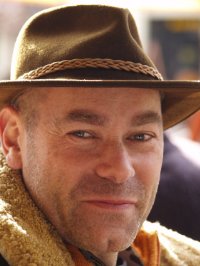 W
WDaniel Waterman is a British philosopher, artist, writer, freelance researcher, locksmith, and Ayahuasca provider, living in the Netherlands. He is the author of Entheogens, Society & Law: Towards a Politics of Consciousness, Autonomy & Responsibility, edited by Casey William Hardison, and published in 2013.